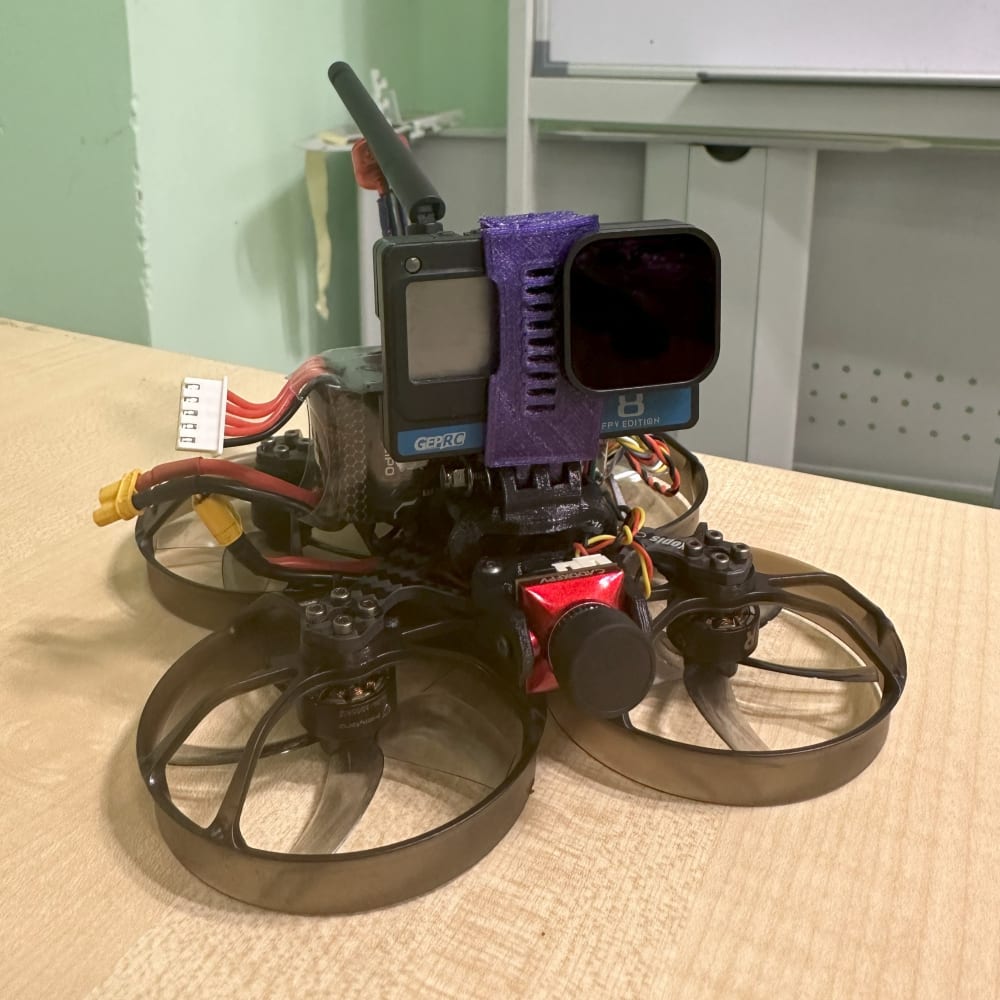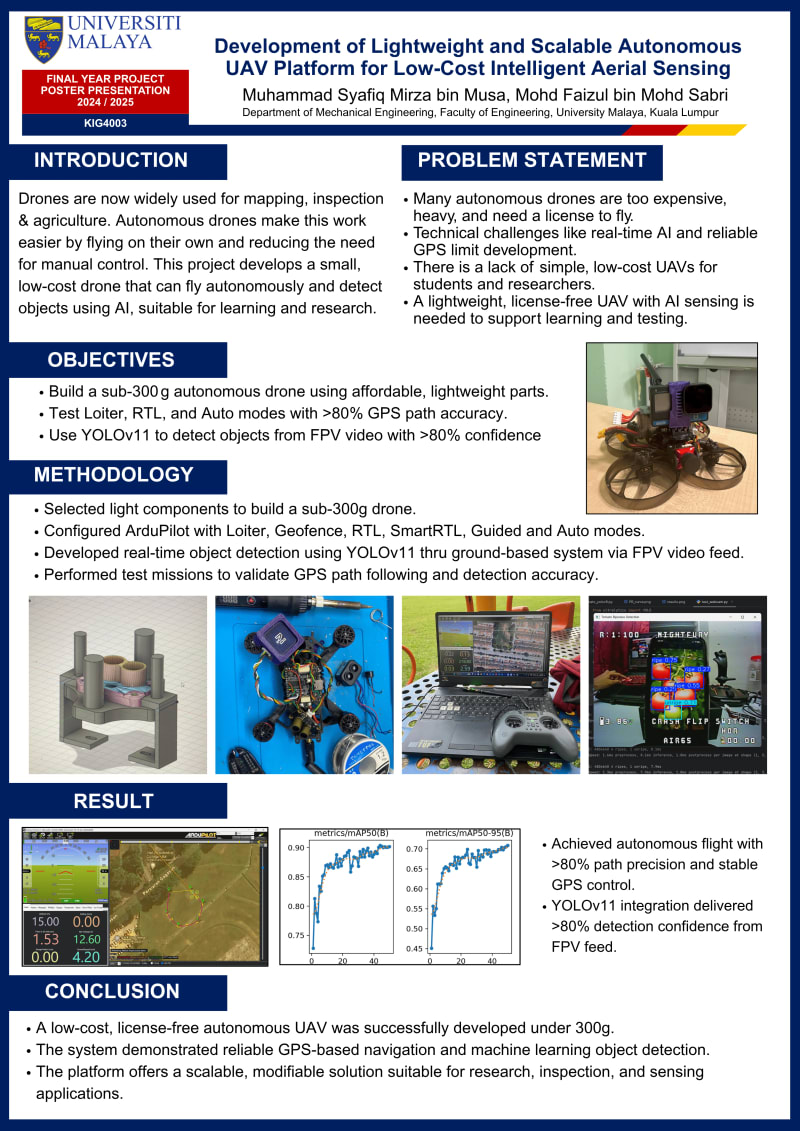Current autonomous drones for aerial sensing are often costly, heavy (typically over 500 g), and require licensed pilots under aviation regulations. This restricts their use for education, research, and small-scale field applications. LiSA UAV addresses this by offering a lightweight (d on a compact 2.5-inch cinewhoop carbon fiber frame. It supports multiple autonomous modes, including Loiter, Return-to-Launch (RTL), and GPS waypoint Auto. Field tests demonstrated consistent waypoint accuracy of ≥80% with minimal drift (1–2 m) and stable hovering at a safe minimum altitude of 15 m to handle GPS error, validated through repeated trials.
For intelligent sensing, LiSA UAV streams live FPV video to a ground control station where a YOLOv11 machine learning model detects objects in real time, such as crop ripeness. The system achieved an mAP50 of 0.90 and precision of 0.85 using a Roboflow-trained dataset, with detection results stored in Firebase for further analysis. By processing AI tasks on the ground, the UAV remains lightweight yet delivers robust sensing capabilities.
Unlike heavier commercial drones tied to expensive proprietary systems, LiSA UAV is fully open-source, modular, and student-friendly. Users can freely modify hardware and software, add sensors, or adapt missions without vendor restrictions. By staying under 300 g, LiSA UAV avoids licensing requirements in many regions, making it accessible for research, prototyping, and STEM education worldwide.
LiSA UAV is ideal for precision agriculture, environmental monitoring, laboratory learning, light inspection tasks, and training autonomous navigation algorithms. Its compact design and low cost make it practical where conventional drones are too large or unaffordable. Target users include universities, technical colleges, robotics clubs, agricultural startups, and NGOs working in remote or developing regions.
Built with standard FPV parts, open-source firmware, and optional 3D-printed mounts, LiSA UAV can be assembled in under 14 weeks with basic soldering and configuration. The full build costs under USD 300—significantly lower than typical autonomous drones priced from USD 1000–5000.
LiSA UAV broadens access to robotics education, reduces time for repetitive inspections, and helps small farmers monitor crops efficiently. By enabling low-cost autonomous missions, it can help reduce pesticide use, improve yields, and create local jobs in drone training and data services.
This project is part of a Final Year Project under the Department of Mechanical Engineering, Universiti Malaya, one of the top public universities in Kuala Lumpur, Malaysia, ranked #58 in the QS World University Rankings 2026. LiSA UAV was awarded Silver at the Universiti Malaya Undergraduate Ideas Festival 2025, demonstrating its promise as an open, scalable platform for affordable intelligent aerial sensing.
Like this entry?
-
About the Entrant
- Name:Muhammad Syafiq Mirza Bin Musa
- Type of entry:individual
- Software used for this entry:Fusion 360, Ardupilot, Mission Planner
- Patent status:none









